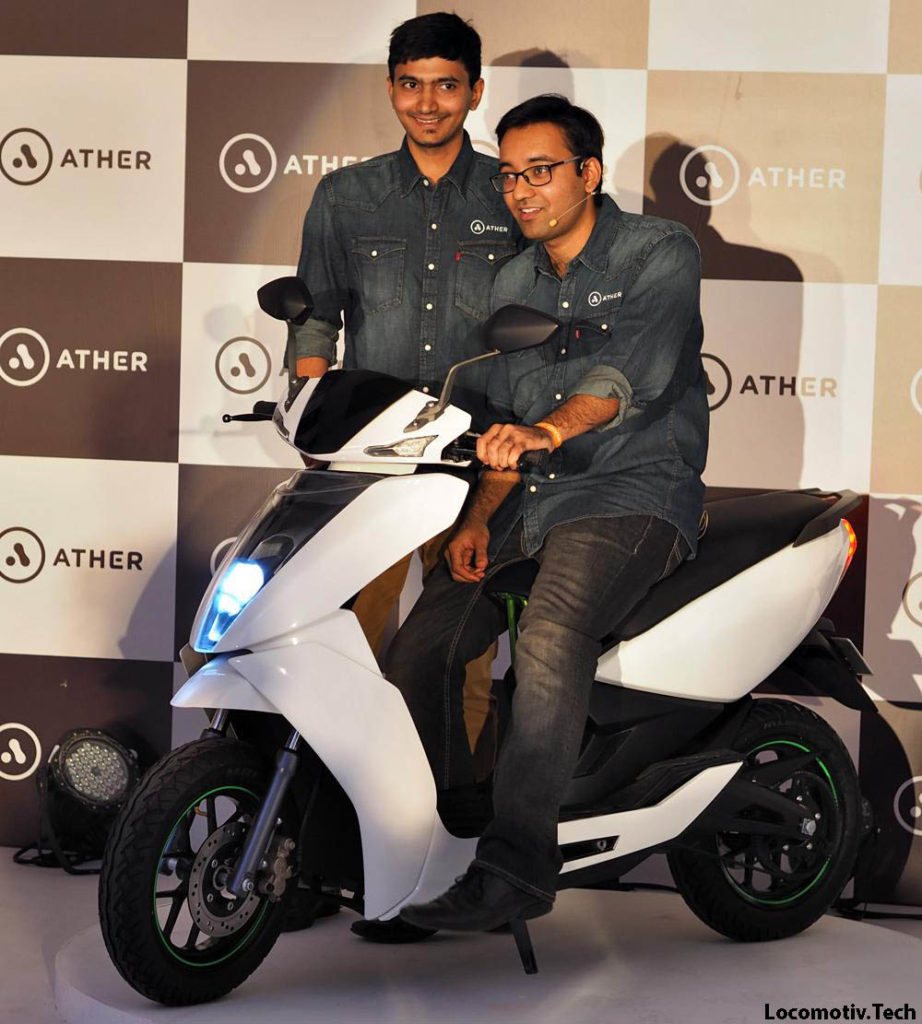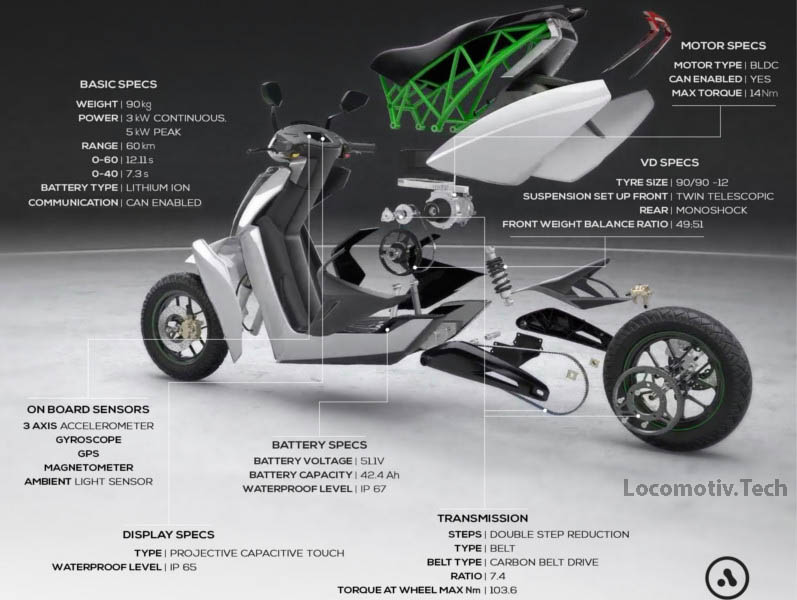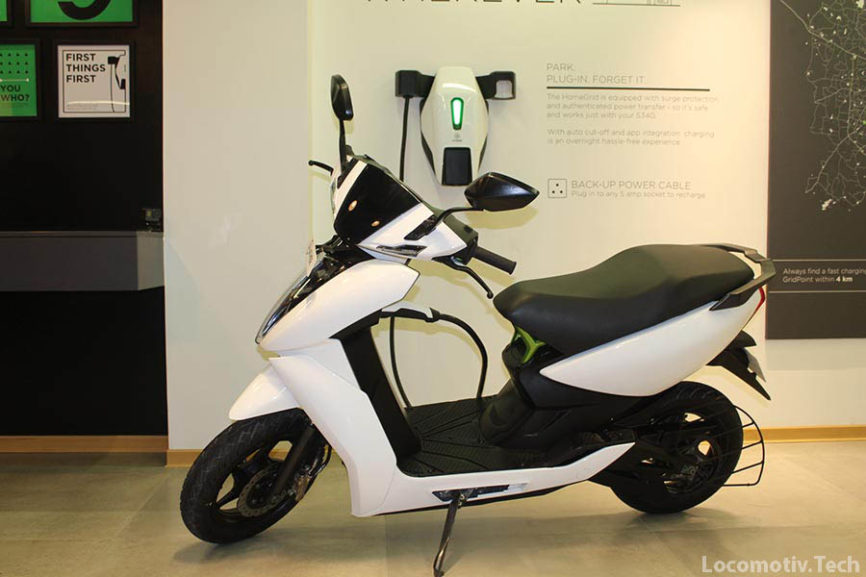“We didn’t begin this to save the environment,” confided Tarun Mehta about the electric scooter company he cofounded in 2013 with college friend Swapnil Jain, Ather Energy. But if opposing the country’s gas-guzzling vehicles helps clean the air, so be it. “The correct way to actually do that is to create a product that people will buy—we believe the future is electric,” he says.
Ather and other manufacturers of electric scooters are stirring up a two-wheeled market that developed 6% in the year ended March 31, to 24.5 million units, according to the statistics by the Society of Indian Automobile Manufacturers. That’s helped attract roughly $93 million in investment to Ather, including a $51 million round in May managed by e-commerce marketplace Flipkart cofounder Sachin Bansal that priced it around $400 million. Other financiers include VC firm InnoVen Capital and scooter and motorcycle producer Hero MotoCorp, which retains a 32% stake in the company. Hero is the major maker of gas-power scooters by sales in India and the world, and this year began selling electric bikes under its own trademark.

CEO Mehta and Jain, now Ather’s leading technology officer, initially became interested in transport technology during their studies at the Indian Institute of Technology Madras (IIT Madras)—in the city presently known as Chennai. “We started constructing a Stirling engine,” says Mehta, mentioning to a closed-system engine that employs compression and expansion of liquid to transfer heat into motion. “We failed, but the philosophy of what we wanted to do went pretty deep for us.”

The two accepted engineering jobs after graduating in 2012, but were shortly back in IIT Madras’ labs, using its technology incubator to experiment an idea for battery packs. That work fast led them into electric scooters. The following year, Mehta and Jain launched Ather. The name is derived from the ancient Greek conception of a fifth element, “the purest form of energy,” says Mehta. “We desperately wanted to build an energy company. With the exception of the internet, you can trace almost any industry to energy.”
Last year, they inaugurated a showroom in Bangalore and a second one this year in Chennai, with plans to launch in Delhi, Pune, Hyderabad and then Mumbai. They’re also searching for partners in Asia and Latin America. Nevertheless, Mehta says he wants to steady the sales across India before Ather ventures outside.
Brand loyalty and sleek designs are essential to Indian scooter drivers, but price is overriding. There Ather has a drawback; its Ather 340 sells for approximately $1,600 and its Ather 450 for $1,770. Equivalent gas-driven models are sold for about $950. Electric competitors have also mushroomed, with local websites proposing comparisons of the best electric scooters for sale.
The duo plan to lower prices by taking benefit of tax breaks and subsidies \ being rolled out across India to boost lower emissions. Mehta says customers are also appealed by the bikes’ interactive touchscreen consoles and built-in Google-backed direction-finding systems, coupled with faster acceleration than gas-powered kin.
“Hardly 5% of our market is the hip, T-shirt wearing, Apple watch-using, Uber-taking kid we anticipated,” says Mehta. “You’d be surprised; many people are exceptionally keen on a lot of freshness in the market. We’ve had an enormous change of opinion on who is going to buy our product.” Making more sustainable transportation is only one piece of the puzzle though, says Mehta. He is optimistic that twenty years from today, Ather should be way larger than an automotive company.

